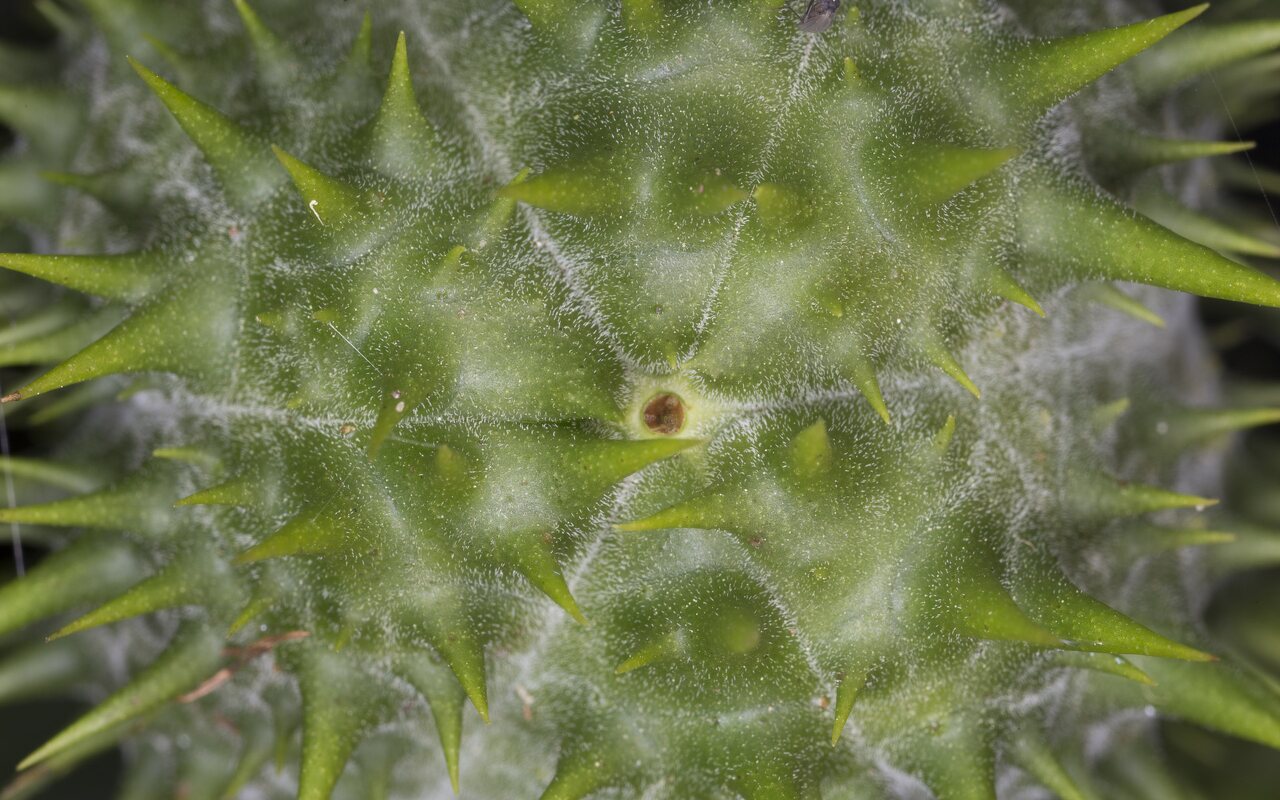
Datura stramonium · paprastoji durnaropė
- thorn apple, jimsonweed, devil's snare, devil's trumpet
- Gemeine Stechapfel, Weißer Stechapfel
- paprastoji durnaropė
- dzeloņainais velnābols, parastais velnābols
- bieluń dziędzierzawa
https://en.wikipedia.org/wiki/Datura_stramonium It is a poisonous flowering plant of the nightshade family Solanaceae. Its likely origin was in Central America, and it has been introduced in many world regions. It is an aggressive invasive weed in temperate climates across the world. D. stramonium has frequently been employed in traditional medicine to treat a variety of ailments. It has also been used as a hallucinogen (of the anticholinergic/antimuscarinic, deliriant type), taken entheogenically to cause intense, sacred or occult visions. It is unlikely ever to become a major drug of abuse owing to effects upon both mind and body frequently perceived as being highly unpleasant, giving rise to a state of profound and long-lasting disorientation or delirium (anticholinergic syndrome) with a potentially fatal outcome. All parts of Datura plants contain dangerous levels of the tropane alkaloids atropine, hyoscyamine, and scopolamine, which are classified as deliriants, or anticholinergics. The risk of fatal overdose is high among uninformed users, and many hospitalizations occur among recreational users who ingest the plant for its psychoactive effects. Deliberate or inadvertent poisoning resulting from smoking jimsonweed and other related species has been reported.
Vienmetis metro aukščio žolinis augalas. Stiebas stačias; lapai pražanginiai, dideli, stambiai dantytais kraštais; žiedai pavieniai, balkšvi, piltuvėlio formos. Jų kvapas nemalonus, svaiginantis. Vaisius – dėžutė. Auga apleistuose daržuose, šiukšlynuose. Žydi vasarą. Augalas nuodingas, kosmopolitas, galbūt kilo iš Centrinės Amerikos.
‥
0 comments
Add a comment